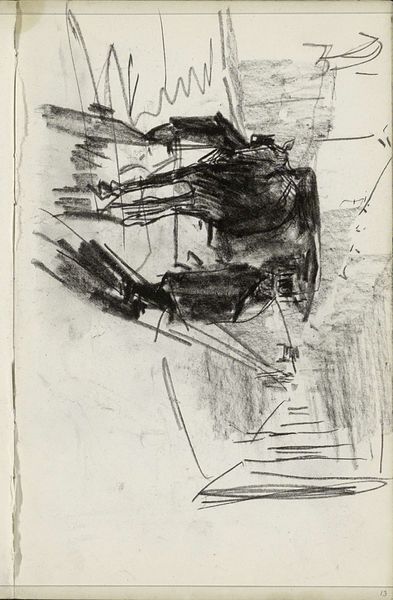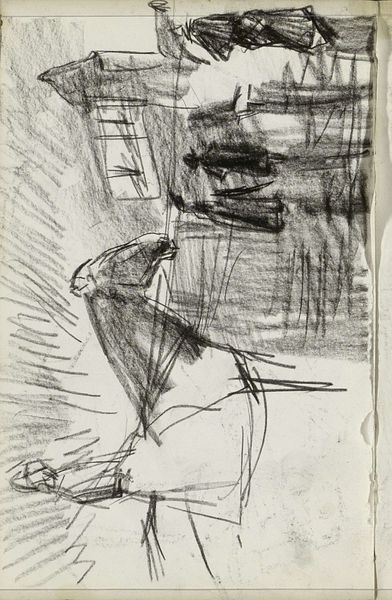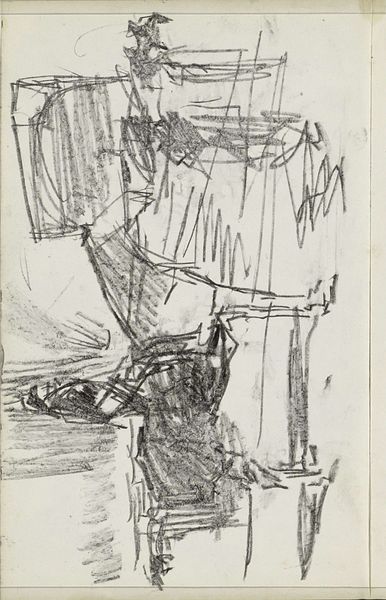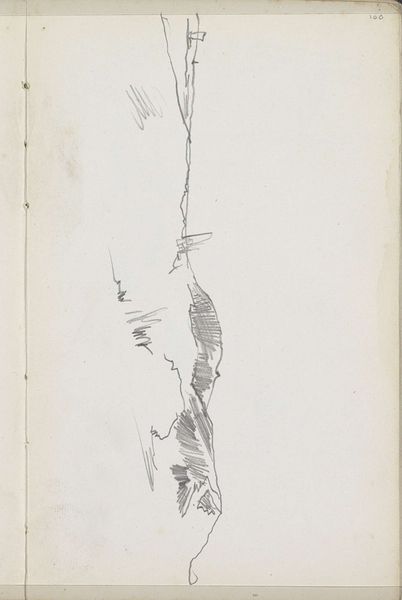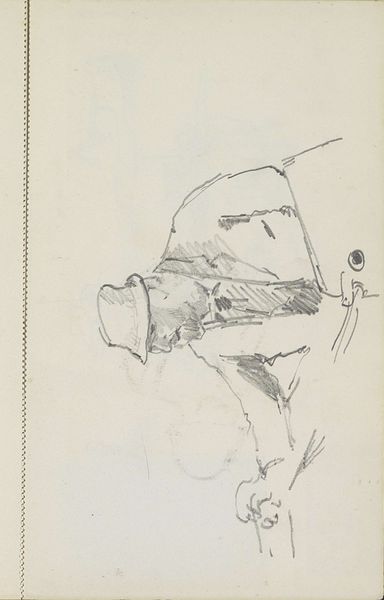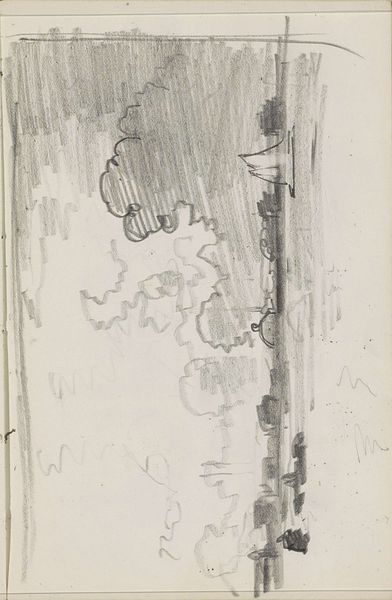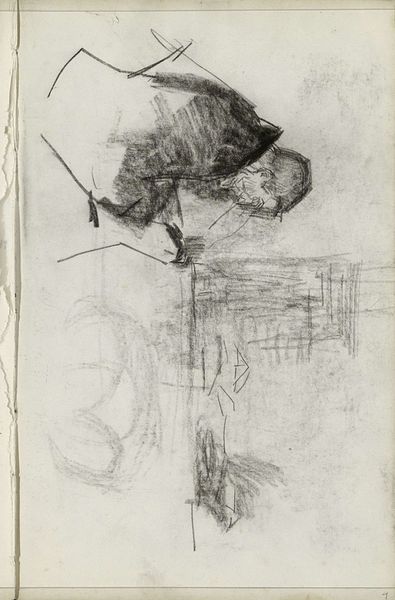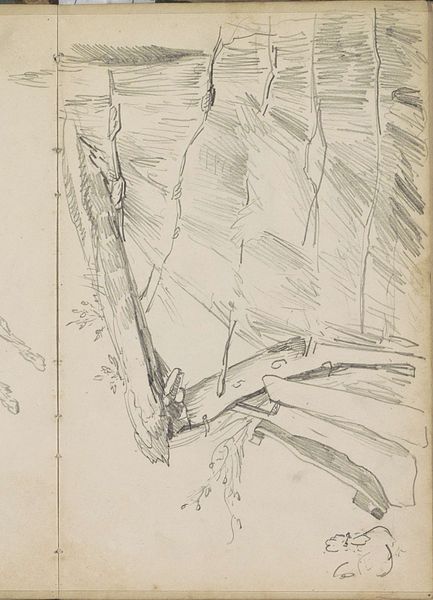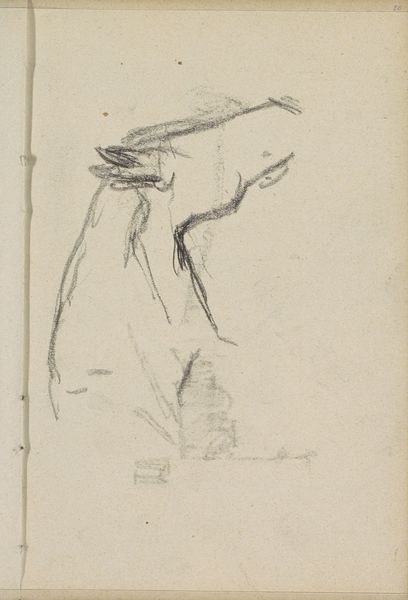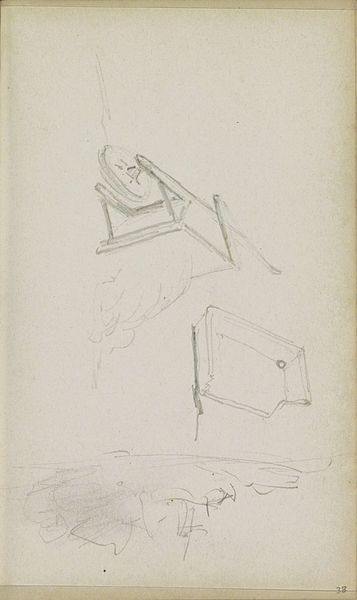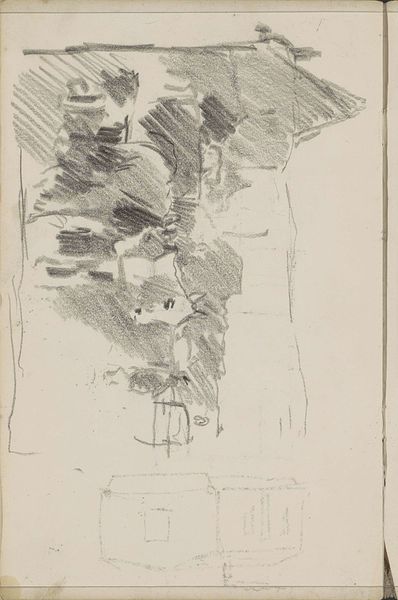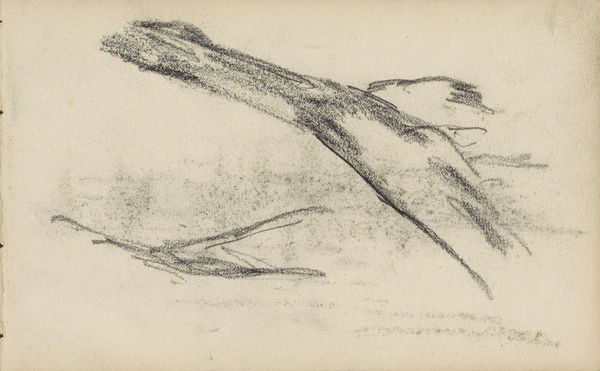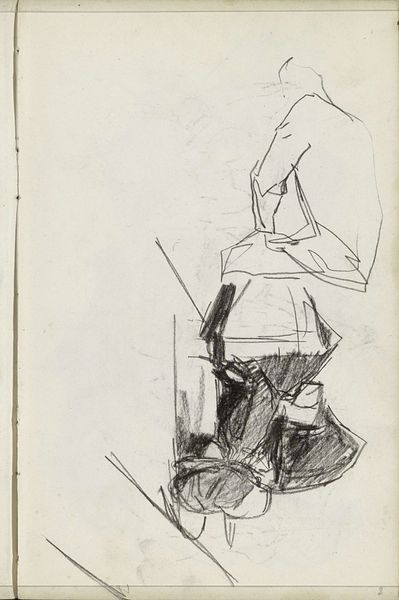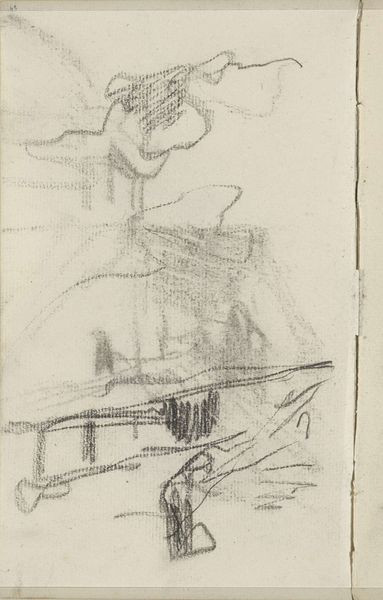
drawing, pencil
#
portrait
#
drawing
#
amateur sketch
#
light pencil work
#
quirky sketch
#
pen sketch
#
incomplete sketchy
#
landscape
#
figuration
#
personal sketchbook
#
ink drawing experimentation
#
pen-ink sketch
#
pencil
#
sketchbook drawing
#
sketchbook art
Copyright: Rijks Museum: Open Domain
Editor: Here we have "Ruiter, mogelijk een soldaat," or "Rider, possibly a soldier," by Isaac Israels, made sometime between 1875 and 1934. It's a pencil drawing. There's a certain immediacy to it, a snapshot feel. What strikes you about this work? Curator: I'm drawn to its raw depiction of military life and what that might suggest about the artist's socio-political viewpoint. What do you think Israels might be conveying through this seemingly simple sketch? Editor: I hadn't really considered that. It seemed more like a quick study, a moment captured. Curator: And that moment is carefully selected, wouldn't you agree? Consider the period this work inhabits: late 19th, early 20th century. Military expansion and social upheaval defined the era. The depiction of a soldier, even in this informal way, carries weight. We might want to look closer at issues of gender, class and nationhood that are present in this image. Editor: So, you see the 'possibly a soldier' as maybe less about literal identity and more about societal pressures and constructs of the time? Curator: Exactly. Israels invites us to confront the often-overlooked everyday experiences of those who serve within the machinery of a militarized society. The loose sketchwork mirrors that sense of fluidity, that 'incompleteness' of what the military means to folks who serve, whether willingly or otherwise. Editor: That really reframes my thinking about the piece. I initially saw it as a casual sketch, but now I recognize there could be some implied critical discourse about class, gender and society. Curator: Precisely. It prompts us to challenge the aesthetic ideals of the day and appreciate artistic experimentation for social commentary, for a viewpoint. Editor: I’ll definitely keep that in mind when looking at other works from the period. Curator: Likewise, you’ve reminded me to never underestimate the impact of those so-called ‘everyday’ moments that speak volumes about the lived experiences that we examine, study, reflect, and share in art.
Comments
No comments
Be the first to comment and join the conversation on the ultimate creative platform.
